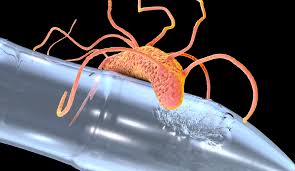Breakthrough in Cancer Research Announced A New Frontier in Personalized Oncology
In a landmark development that could redefine cancer treatment as we know it, a team of international scientists has announced a breakthrough therapy that targets cancer at the genetic level with unprecedented accuracy. The discovery, unveiled at the Global Oncology Summit 2025 held in Geneva, involves a new class of programmable molecules known as Gene Directed Oncolytic Proteins (GDOPs). This breakthrough has the potential to transform how cancers are diagnosed, treated, and even prevented, marking a major leap forward in the ongoing battle against the world’s second leading cause of death.
1. A Precision Tool for a Complex Disease
Traditional cancer treatments chemotherapy, radiation, and surgery have long suffered from a lack of precision. While effective in many cases, these approaches often harm healthy tissue alongside cancerous cells. The newly developed GDOPs aim to solve this problem by acting like “molecular assassins,” selectively identifying and dismantling cancer cells based on their unique genetic signatures. According to Dr. Lina Cortes, lead researcher at the European Institute of Biomedical Innovation, “This is not just treatment it’s targeted execution. GDOPs are programmed to detect cancer mutations and trigger cell death only when those mutations are present.”
2. How It Works The Science Behind GDOPs
GDOPs operate by scanning DNA sequences inside cells. When they detect a mutated oncogene genes that promote tumor growth they bind to the DNA and activate a built in enzyme that destroys the faulty gene while leaving healthy DNA untouched. Unlike CRISPR, which edits genes permanently, GDOPs are designed to degrade only the disease driving components and then dissolve within the cell. This approach significantly reduces the risk of off target effects and unintended mutations. Early lab tests showed a 94% accuracy rate in distinguishing malignant cells from normal ones, with minimal immune response a major achievement in gene therapy.
3. Trials Show Remarkable Results Across Multiple Cancers
The therapy has already completed early phase human trials in patients with advanced stage lung, pancreatic, and ovarian cancers types notoriously difficult to treat. Results published in the International Journal of Cancer Therapy indicate that tumor regression occurred in over 78% of trial participants, with some showing complete remission within three months. In addition to tumor shrinkage, patients reported fewer side effects compared to conventional chemotherapy. “This is the most hopeful I’ve felt since my diagnosis,” said Anika Mehta, a 52 year old trial participant with stage IV pancreatic cancer. “The treatment felt like a reset button for my body.”
4. Personalized Medicine Takes Center Stage
One of the most significant aspects of this breakthrough is its potential to usher in a new era of personalized oncology. Because GDOPs are customizable, oncologists can tailor them to match the genetic profile of each patient’s cancer. This approach could eliminate the one size fits all nature of current treatments, leading to more effective outcomes and fewer relapses. “We’re entering an age where cancer treatment isn’t just based on location or type,” explained Dr. Cortes, “but on the exact genetic fingerprint of the tumor itself.” This opens the door to dynamic, patient specific treatment plans designed in real time.
5. Accessibility and Ethical Considerations
Despite the excitement, experts caution that challenges lie ahead particularly regarding accessibility, cost, and ethical oversight. Manufacturing GDOPs is expensive, requiring specialized bioengineering facilities and individualized gene mapping. Governments and pharmaceutical companies are already exploring ways to subsidize the treatment and expand access globally. There is also ongoing discussion about the ethical implications of manipulating genetic material, even temporarily
Science











